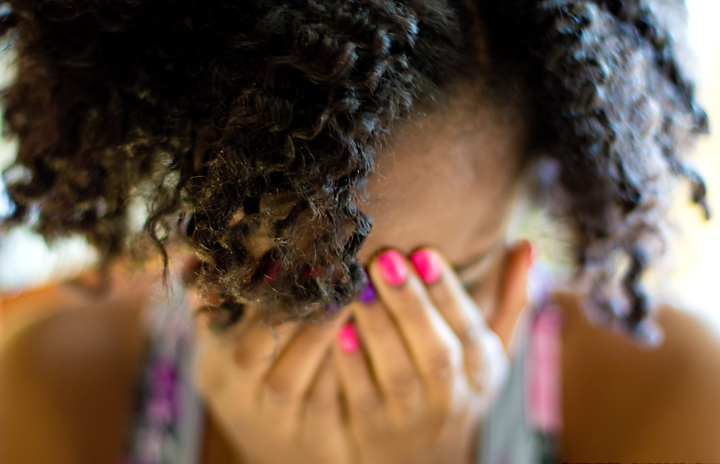We know the issue of hair is a charged conversation for many African American women like myself. Most of the time it’s best just not to talk or ask about our hair. From the pressures to have our hair look one way or the other, many women of color, have turned to “ethnic” hair care products. Unfortunately, many of these products contain highly toxic chemicals.
Toxic chemicals linked to health effects like fibroids, cancer, early puberty, harming the brain, to hormone disruptors; the toxic effects of hair products targeted for African Americans is undeniable. After the release of Chris Rock’s documentary, “Good Hair” many Black women began turning down relaxers in favor of embracing their natural hair texture.
Is the toxic trend over? Not quite.
You might be asking- How is this possible?
Did you know that some companies actually justify their toxic ingredients citing that they may the product more effective? It’s true.
Let’s take for example a product called, Africa’s Best Organics Touch-Up Plus Organic Conditioning No-Lye Relaxer System for New Growth (2009 formulation). It is far from “organic”.
The name makes the product seem safe and natural, but it has several ingredients linked to cause cancer, reproductive health effects, allergies, endocrine disruption, immune system damage, cellular damage, skin irritation, and other organ toxicity.
Unfortunately, this product is a lot like other relaxer and perm products targeted for women of color.
The issue of toxic chemicals became so large, in 2008, the EPA sponsored a panel to investigate the health and environment impacts of Black hair care products. With Black women spending billions of dollars each year on hair styling products and services, the industry is profiting despite their toxic secrets. But that trend is changing.
The outing of the harmful chemicals lurking black hair care products, sparked a movement.
The natural hair movement has branched beyond hair care products; organic moisturizers and makeup made for Black women are increasing. All-natural products using organic balms and oils have made it easier to avoid toxic hair products. But, consumers should still read the labels and look out for toxic ingredients when possible.
This incredibly important issue is one of many reasons we launched the Mind the Store campaign last year. We’re working with the nation’s leading retailers to ask them to take action on toxic chemicals, like some that are found in these hair products. Women of color are at a disproportionate risk for many health problems, African American children face the fastest rising rates of asthma, and communities next to manufacturing facilities and industrial waste sites are often communities of color.
So when you add all of these exposures up, and add on toxic hair and personal care products, it’s like adding insult to injury.
For more information on toxic products targeting Black women read The Campaign for Safe Cosmetics Report: “Not Too Pretty” here.




